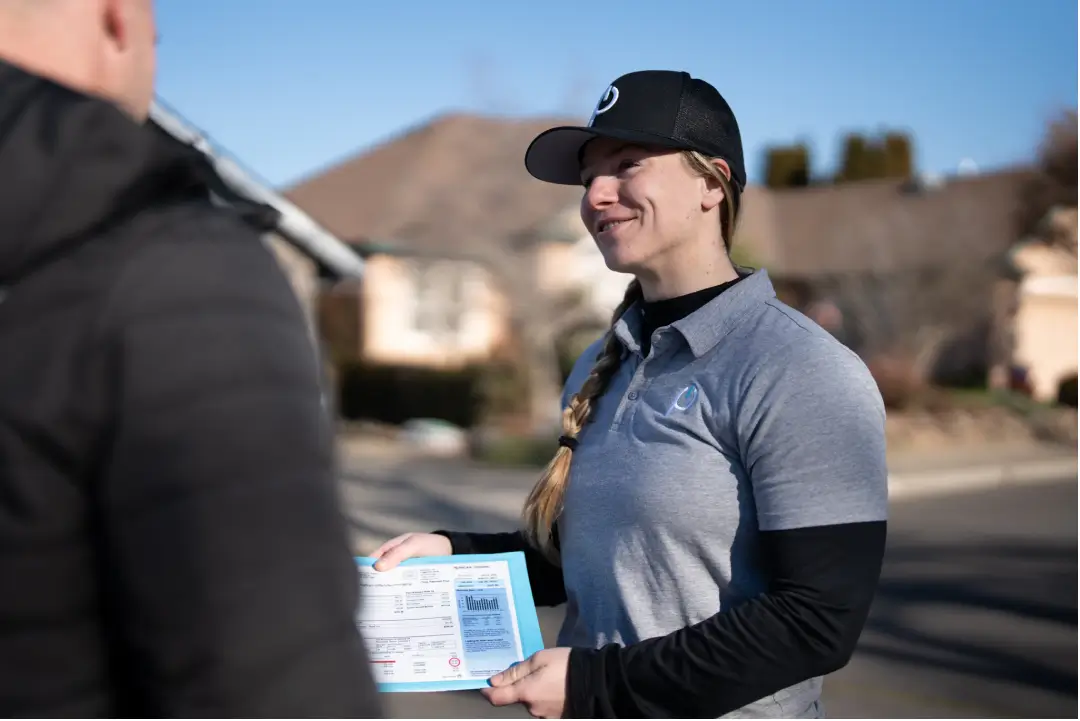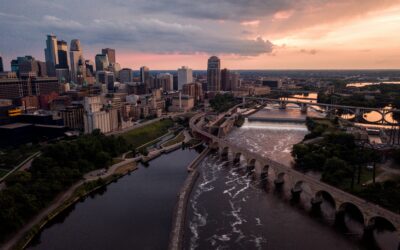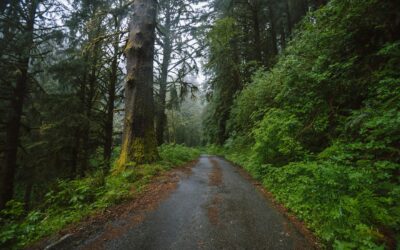Across the United States, solar is becoming more common. Between 2007 and 2021, more than 121 gigawatts of solar power were installed!
But with any new technology come some valid and common questions. After all, no homeowner wants to invest in something for their home that won’t work how they need it to.
We’ve combed through the questions we receive from curious homeowners, and taken a look across the web to bring you a list of the 10 most common questions about solar.
Keep reading to find out what they were, and how we answered them.
#1: Should I buy or lease solar?
As you dig into your options as a homeowner looking to go solar, you’ll find three main options: buy/finance, lease, or purchase power agreement. But which one should you choose?
For most homeowners, the obvious answer will be to buy/finance a system that they own outright. Not only do systems which are homeowner-owned raise the value of your home by 4% or more, but only systems that are owned (including financed systems) can be used to claim the Solar Investment Tax Credit.
With both leased and purchase power agreement systems, there’s less cost, but you also don’t have any control over the equipment installed on your property.
#2: What is the difference between on and off grid solar?
Off grid and on grid systems use much of the same equipment, with one major difference. On grid systems connect back to your local electrical grid, which allows you to send back any excess energy you produce and receive a net metering credit.
Off grid systems don’t have this capability, so you’ll need a battery system capable of storing enough energy to work during overcast or dark periods.
#3: What is net metering (NEM)?
Net metering is a policy and process. The policy is at state level (so it’ll vary depending on where you live), and guarantees the right of homeowners who have solar to connect into the grid where they live. By being connected to the grid, you’re able to send excess energy your solar energy system produces back onto the grid for use in your community. Because you’re helping to power your community, you receive a credit for that extra energy.
We have a blog that goes more in depth about net metering, if you want to learn more.
#4: How long do solar panels last?
25 to 30 years! Solar panels being manufactured today are designed to last at least a quarter of a century. You should be able to expect pretty much the same amount of energy produced every year for the first 20 years. After that, the cells do start to degrade, but they will still produce up to 30 years of energy.
#5: How does solar save me money?
Yes, installing residential solar panels really can save you money. It might sound counterintuitive that spending money could help you save, but over the life of a system, homeowners can save thousands.
For instance, if a homeowner goes solar with Purelight’s $0 down program, they might invest in a system at $25,000. After they claim the Solar Investment Tax Credit, which helps them recoup 26% of their installation costs, they’d have just $18,500 left.
With a monthly payment of $140, which replaces the now wiped out power bill, the homeowner can see their system paid off entirely in around 11 years. Since solar panels last at least 25 years, that’s 14 years of power for free!
Saving that $140 a month for 14 years means you save $23,520!
#6: Does solar impact property value?
Yes, in a positive way. As we mentioned briefly above, when a homeowner purchases and installs solar on their home or property, they can see upwards of a 4% increase.
The best part is that in many states (like Oregon, Montana, and Iowa), solar is currently exempt from property taxes for anywhere from 5 years to the life of the system. You can add value to your home without seeing your property taxes increase!
#7: What happens if I sell my house after installing solar?
Solar lasts longer than many of us expect to live in our homes, given how frequently people move. But that doesn’t mean it’s not a good investment if the home you’re in isn’t your forever home. Most solar energy systems will be paid off in as little as 10 years.
If you expect to sell your home before that point, you have two options: roll the cost into the listing price and pass the contract onto the new homeowners OR use that increased property value towards paying off any remaining balance.
#8: What happens if there is snow or debris on the panels?
Homeowners with new solar are often concerned about how they’ll keep the new addition to their home clean and free of debris. Especially in areas that see regular snow. The great news is that with professionally installed solar your panels will help keep themselves clear.
When solar is installed correctly, it’ll be placed at an angle both to capture as much sun as possible, and to help any debris slide off of it. In the few instances where you have debris that’s stubbornly staying put, cleaning your solar panels is as easy as grabbing your garden hose and giving them a good spray.
For more, check out these resources on caring for your solar in Oregon, Iowa, and Montana.
#9: How do I know how much energy my solar panels are producing?
When you get residential solar professionally installed, the system should come with a way to monitor your panels. This will allow you to catch any issues with the system, as well as monitor how much energy your solar panels are producing.
For instance, homeowners who go solar with Purelight Power have an app they can easily check right from their phone. It shows them daily energy generation, as well as monthly and system lifetime views.
#10: Do solar panels work if the power goes out?
For grid tied solar, when the power goes out your system will shut off automatically as well. That’s a safety measure to make sure that your panels don’t wind up sending any electricity back onto part of the grid that’s being worked on (we don’t want anyone getting electrocuted).
But even grid tied solar energy systems can be set up to have a generator switch that allows a generator to kick in during power outages. Off-grid solar is its owned, self-contained system, so a power outage shouldn’t affect it.
Ready to make the switch to solar and save?
Purelight Power is your local and professional home solar across Oregon, Iowa, and Montana.
Find out in less than 60 seconds if your roof qualifies for solar with $0 down!





